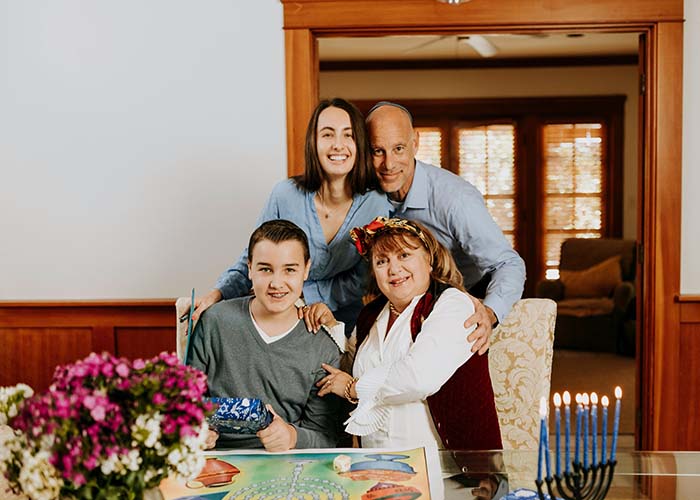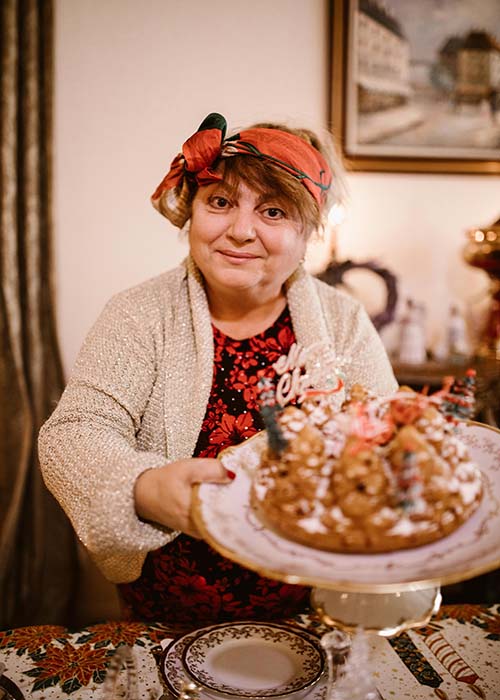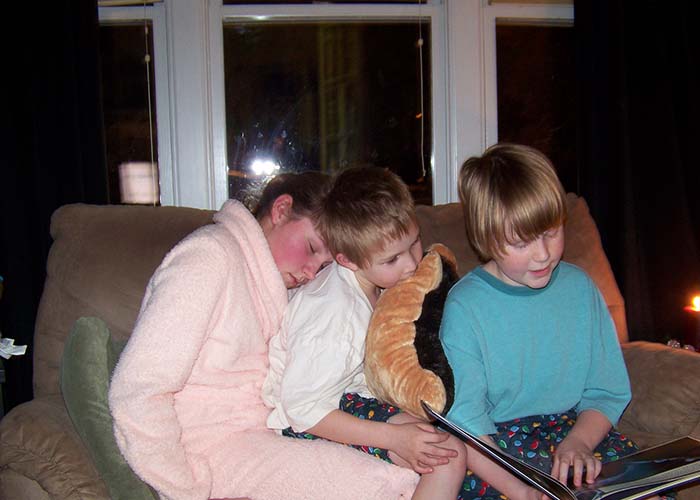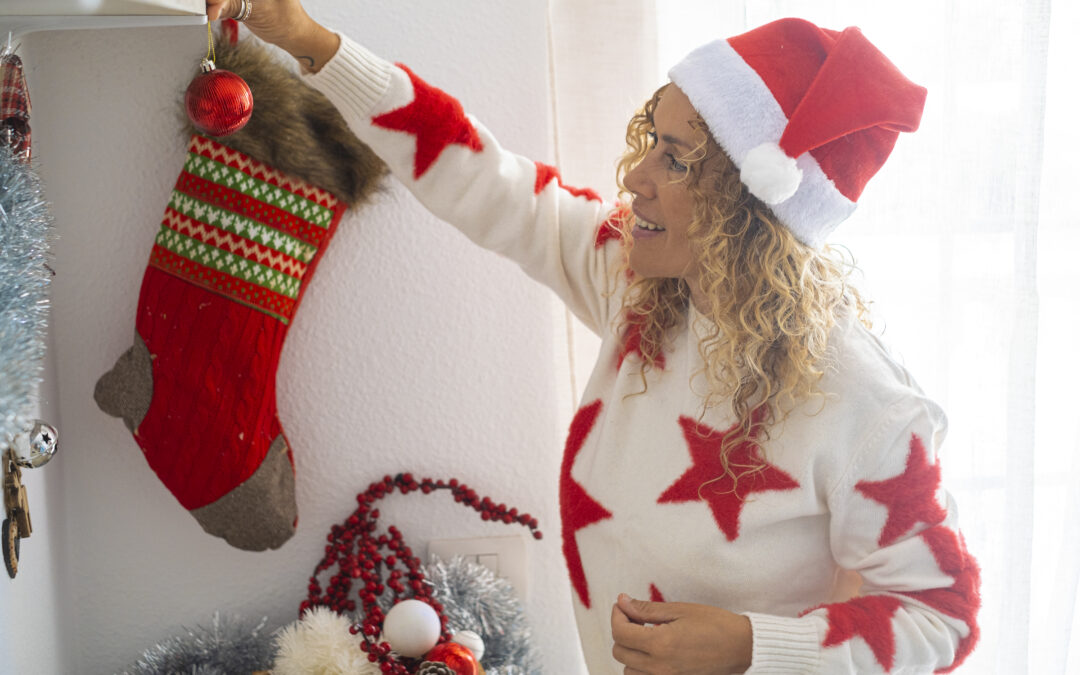Self-Care and Family are difficult to balance, especially during the holidays. The holidays are sold to us as a time of joy, connection, and celebration. But for moms managing ADHD, anxiety, or the lingering effects of childhood trauma, the holidays often include stress, overwhelm, and upsetting feelings of disconnection. It’s easy to feel like you’re falling short of creating the holiday experience you desire for your family, especially when your own memories aren’t filled with joy and stability.
Now that you are a mom, you yearn to create a different story, one with family holidays vastly
different than the ones you remember as a child. But the pressure to create “the perfect” holiday can make you anxious and, in the end, disappointed. The exact opposite of what you wanted. I have been there. Sometimes, I still am, but I have learned a few things from my experience and the many mothers I have worked with who have been there too. This is for all the Moms who want to do better, be better and to FEEL better during this holiday season.
Let this year be the beginning of something good.
10 Ways You Can Feel Calm, Content, and In Control This Holiday Season
1) Prioritize Your Feelings (and then the feelings of others you love too)
To truly be there for others and feel connected to them, you need to first take care of yourself. By practicing accepting and caring for your feelings (yes,in the midst of a busy, emotionally charged holiday season), you will have more emotional room to be there for others who need you too.
When we avoid, numb, and push down our feelings, it is like trying to hold a beach ball under water. One moment of inattention, and these feelings will pop up and surprise us as they splash us in the face.
Instead, take time to let the feelings rise slowly. Be curious about them, care for them, and be kind to them. They need your attention and will give you important information about what you need. They want your support and understanding. This is why they pop up when you let your guard down, your feelings need to be seen, heard, and FELT.

You don’t need to resolve what has led to your feelings. There is just too much going on. You need more time to think and reflect than you have in the middle of a holiday gathering with the usual family shenanigans. Just acknowledge your feelings and let them know you support them. This can help you not “act out” in a way you are sorry about later. Don’t question your feelings, just listen and assume they have a good point. They often have wisdom to share.
2) Schedule Breaks to Check In with Yourself and the”Feels”
Take time to experience your feelings between activities. To do this, you will need to schedule some downtime, even if it means saying no to something or someone. People-pleasing and perfectionism will lead you to overpack your schedule. Resist this urge. Doing more will not make you feel better. This is a trick your mind has played on you many times. Don’t fall for it. Whatever feelings arise during these check-ins, accept them. Allow yourself to feel them without questioning or judgment. Simply allow your feelings to be there and not be criticized, minimized, or negated. Unfortunately, we even do this to ourselves. If you don’t do it, your feelings will love you for it.

3). Practice Self-Compassion
When you show yourself this same understanding, see it as self-care; don’t view it as self-pity. You are not going to wallow or stay stuck in these feelings if you allow them to surface. Feelings that are acknowledged tend to pass more easily and quickly. If you listen to your feelings, they don’t have to grow louder. If you don’t resist them, they will not have to persist to be heard.
Showing compassion for yourself creates space for healing. This practice helps you connect more deeply with your own emotions, making it easier to connect with others in a meaningful way. This is how we begin to feel self-acceptance and belonging with others instead of feeling lonely and isolated.


4). Simplify
The holidays can stir up a desire to overcompensate—especially if you didn’t experience joyful or stable holiday seasons as a child. But remember, it’s not the decorations, the gifts, or the food that you yearned for, and neither do others. It’s feeling safe and connected that we all crave.
Picture Charlie Brown talking to Linus in the Peanuts Christmas special. You can feel his loneliness and his anticipation of the letdown he expects to feel. We all know the feeling. It’s why we love Charlie Brown. He is us. This special is a classic because, in the end, ol’ Chuck gets what he is looking for: feeling connected to his friends and to what he needs. He doesn’t need perfection; he needs his friends and a sense of belonging.

5). Focus on the Meaningful Moments.


6) Plan with Flexibility
Create a flexible schedule that includes only the highest priorities and then possible activities if there is more time. Involve your family in planning to ensure everyone’s favorite activity is included and to increase others’ enthusiasm for helping. Include older children, teens, grandparents, maybe even a “mother’s helper” when preparing for each activity.

7). Ask for Help
Maybe the person who wishes for a particular activity can help with the planning and implementation. If they are too young, another capable person can be assigned a helping role. This will help promote turn-taking for the adults so the same parent or family member is not always burdened with implementing the plan.
When thinking about an upcoming activity, imagine how you will respond when unexpected (or maybe very predictable) things come up. Try not to view how well an event goes as a statement of how well YOU did. A better barometer might be how well you handled yourself or used your sense of humor to de-escalate a situation or conflict.
If a particular family member regularly lets you down when you ask for help, try to think of another strategy or another person to help. Are you familiar with the expression “don’t go to the hardware store for milk”? If a person is not dependable, don’t let wishful thinking keep you turning to them for help or emotional support.

8) Manage Emotional Triggers


Another strategy for lessening the impact of those annoying but expected family stressors is to make a game out of them. If Aunt Hilda always complains about things, maybe you can keep a running count of her complaints. If Uncle Ron is always late, you can make a guessing game out of predicting when he will arrive.
I am not suggesting being mean or making fun of others in a hurtful manner. I would not use this strategy for young children or with others that can’t keep it light-hearted. I am suggesting you find a way to give less “weight” or importance to someone else’s small (but annoying) actions. This can help our brain from getting too hooked by the emotion we feel in response to another person’s behavior. With larger, more hurtful or impactful issues, make a plan for how you can care for yourself or others directly. We want to treat both our own and others’ feelings with love and respect.
9). Learn How to Say No to Family and Support your Partner When They Need to say No
This is such a big one and harder than it sounds. Make a plan for supporting each other when declining requests from family. If needed, you may need help from a therapist or counselor, particularly if this causes conflict between you and your partner or causes you significant distress.
You can also practice what you are going to say in the mirror or with a friend. But the most important step is to give yourself permission to say no when necessary. After saying no, give yourself credit based on whether you followed your plan, NOT the other person’s reaction.
I have noticed ADHD moms, anxious moms, and moms with childhood neglect and trauma all find it hard to ask for help, say no, and to know when to say when. Just because you are capable of doing ten different things doesn’t mean it is best for you to do all of them. Particularly during a very stressful time of year when you have multiple demands and when it causes resentment.

10). Think About Your Own Personal Do’s and Dont’s

11). Stay Focused on the Process rather than the Outcome

Reading Twas The Night Before Christmas with the Mary candle lit on the right edge of the picture. A Mary candle is an Irish tradition. The candle in the window tells Mary and Joseph they are welcome to your “inn” on Christmas Eve.
Final Thoughts
The holidays are an emotionally charged time, and for moms with ADHD, anxiety, or a history of childhood trauma, they can be even more overwhelming. By prioritizing your emotional well-being, practicing self-compassion, simplifying your plans, being flexible, and focusing on connection, you can create a holiday season that’s meaningful, grounded, and filled with love.
You deserve to feel calm and in control. With these small shifts, the support of a partner, friends, or even a therapist, you can start to build a holiday season that brings joy, connection, and healing for you and your family.
Happy Holidays—and remember, your own well-being is just as important as anyone else’s. By taking care of yourself, you’ll be in a better place to care for your loved ones too.
Interested in Therapy for Anxiety or ADHD in Mothers or Moms struggling to parent ADHD or Anxious Kids? Or see my Middle Motherhood Page or Seasoned Mothers Page for more information about my therapy services.

